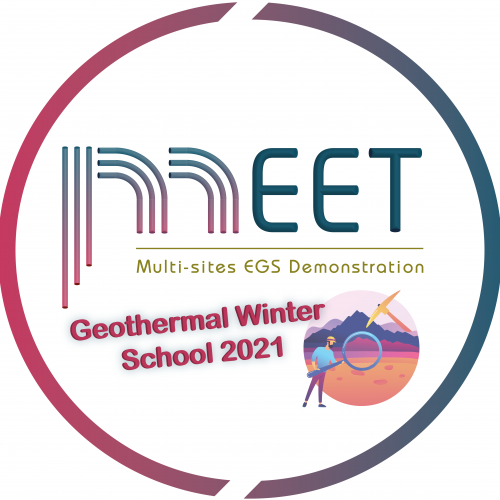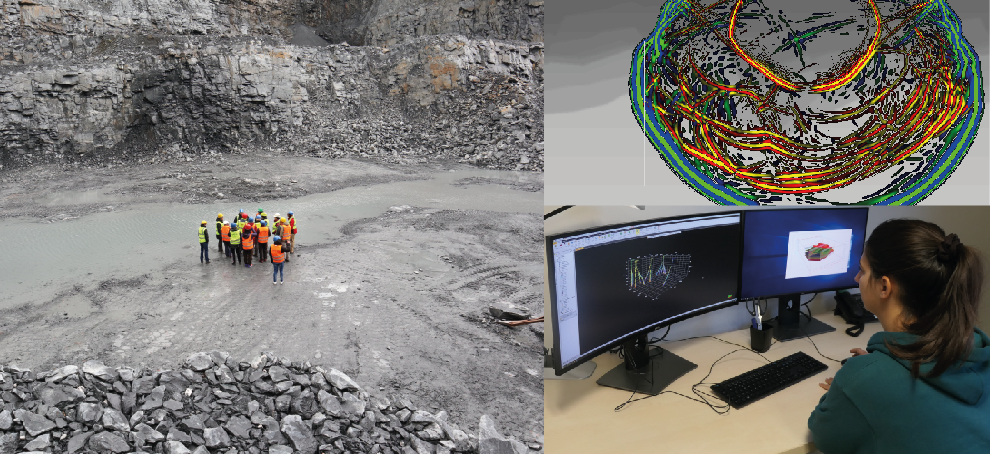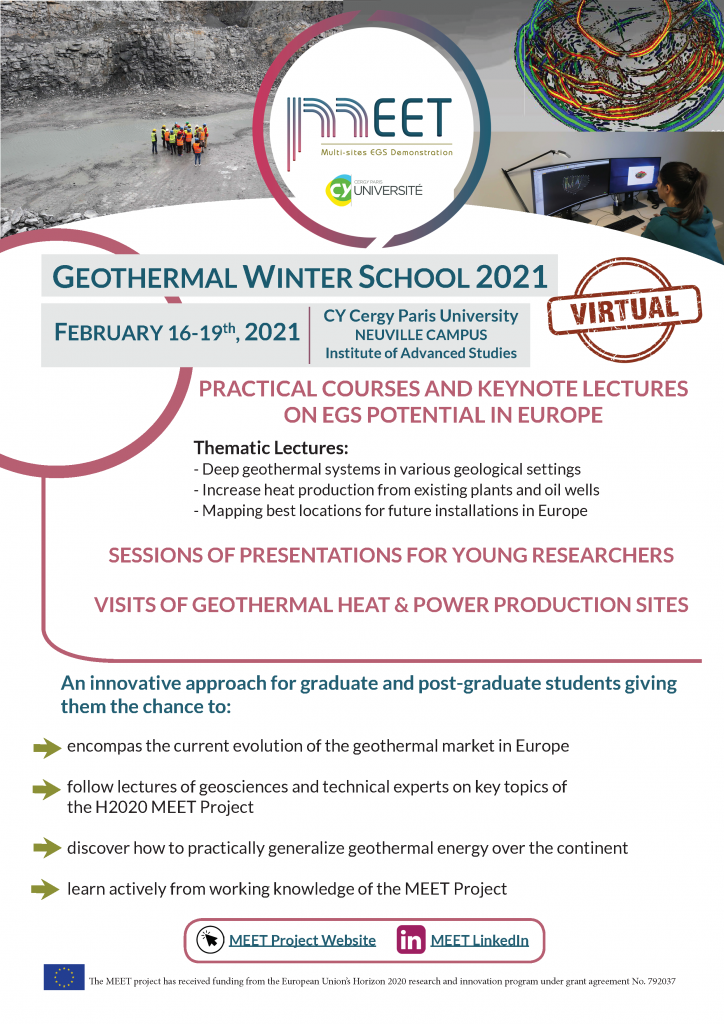Join the MEET consortium for its educational program on 16-19th February 2021
Geothermal is decisive for the energy transition since it provides a flexible base load renewable source of energy. The contribution of geoscientists is central for the development of this form of renewable energy. We need to train today the next generation of Geoscientists in order to develop and exploit the geothermal projects of tomorrow.
Through the Geothermal Winter School, The MEET consortium provides to future geoscientists some practical feedbacks from research and industry in geothermal. Indeed, this educational program is intended to provide new knowledge to European students on Enhanced Geothermal Systems (EGS) and demonstration sites, based on highly advanced research approach and industrial expertise from ongoing projects.
We are delighted to invite Master and PhD students from MEET partners and European universities, but also post-doctoral fellows and engineers to register and follow the lectures in order to acquire new knowledge on EGS. The registration is free.
The Geothermal Winter School will be virtual given the current pandemic. The event will be host on PhD Talent web platform that will communicate with registered students only (so you must be registered by email). Then all applicants will need to register on PhD Talent that works like ResearchGate or Academia. All applicants must install ZOOM desktop on their computer.
Please register by email before 15 January 2021 with your detailed contact (name, university, status, formation name, project name, willingness to submit an abstract – if so, abstract title) and you will receive all information regarding the virtual event (contact here).



